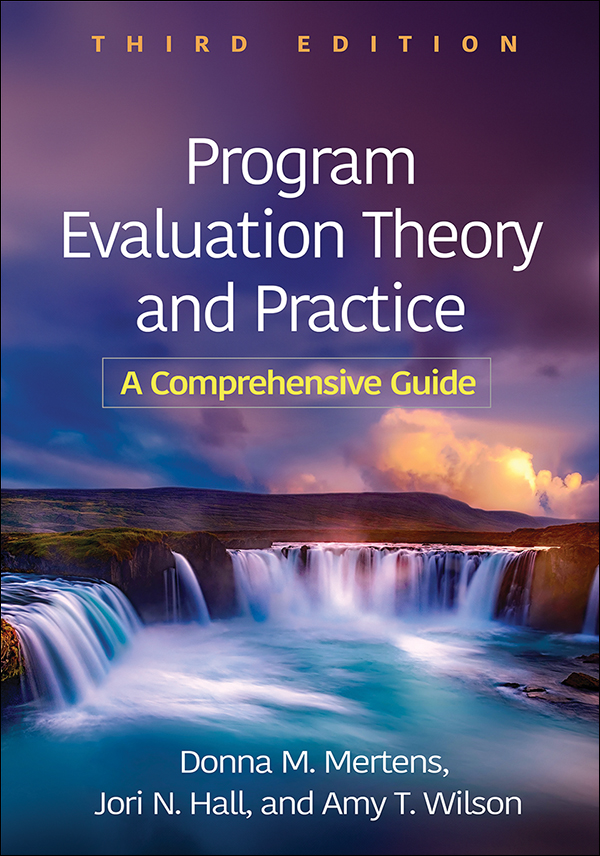Program Evaluation Theory and Practice
Third Edition
A Comprehensive Guide
Donna M. Mertens, Jori N. Hall, and Amy T. Wilson
HardcoverPaperbacke-bookprint + e-book
Hardcover
orderFebruary 14, 2025
ISBN 9781462555918
Price: $134.00 631 Pages
Size: 7" x 10"
Paperback
orderJanuary 17, 2025
ISBN 9781462555901
Price: $89.00 631 Pages
Size: 7" x 10"
Covering both the theory and practice of evaluation in one engaging volume, this leading text is now in a revised third edition. It features additional evaluation approaches, such as the Indigenous paradigm; new examples, ranging from small to large and multi-site evaluations; and more. Instructors praise the diverse evaluations, many with reflective commentary from evaluators, and rich pedagogical features. The text describes the major theoretical paradigms in evaluation and the ways they inform methodological choices. Readers learn effective strategies for clarifying their own theoretical assumptions; working with stakeholders; developing questions; using quantitative, qualitative, and mixed methods designs; choosing data collection and sampling strategies; analyzing data; and communicating and utilizing findings. The book includes guidance for planning an evaluation of a specific project or program. Extensive recommended online resources and tools are provided at the companion website.
New to This Edition
New to This Edition
- Restructured section on philosophical frameworks, with a new chapter on the Indigenous paradigm and expanded coverage of disability, feminist, and LGBTQ+ theories.
- Additional sample studies, including multi-site and systems- and complexity-informed evaluations.
- Expanded coverage of logic models, cost–benefit evaluations, and mixed methods designs.
- New and updated coverage of data collection technologies, qualitative coding methods, Sustainable Development Goals, and uses and pitfalls of artificial intelligence.
- Reflection questions that prepare students to read each chapter.
- “Extending Your Thinking” questions and learning activities.
- New within-chapter maps to aid in navigating chapter sections.
- Boxes offering sample evaluations and closer looks at key concepts.
- Helpful checklists and tables, bolded key terms, and an end-of-book Glossary.
- Companion website with links to recommended online resources and tools.



